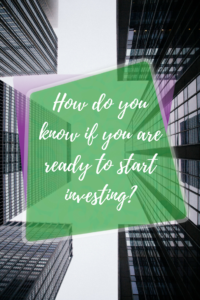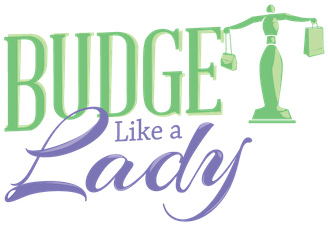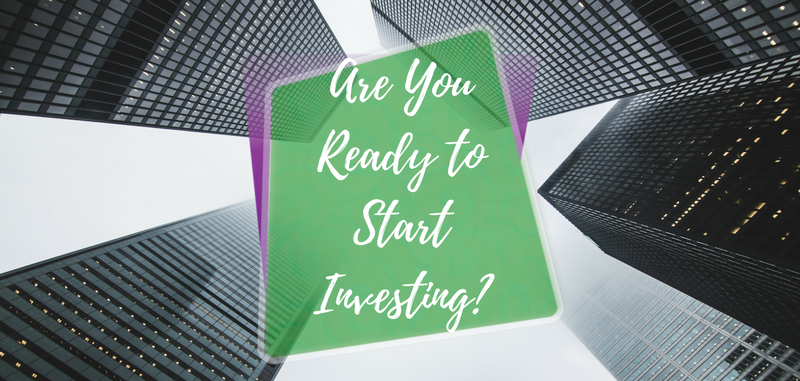Are You Ready to Start Investing?

Steal My Monthly Money Routine
April 11, 2017
5 Personal Finance Books for Women in Their 30’s
April 25, 2017Estimated Reading Time: 5 minutes
When is the best time to start investing in your future? Now that you have created a budget, started saving, and possibly debt free, what is the next step in your financial journey? If you are looking to create wealth, investing could be the next step for you. I am not talking about just retirement accounts; I am talking about getting into stocks and bonds. If you can answer “Yes” to all of these questions, then I think you are ready to start investing.
Do You Have a Fully Funded Emergency Fund?
The first step to finding out if you are ready to start investing is to have a fully funded emergency fund. An emergency fund is money stashed in a savings account that totals at least 3 to 9 months of expenses. Here is my recommendation break down of how much of an emergency fund you should have in your savings account:
If you are a married couple with both of you having steady jobs, I recommend at least 3 months of expenses saved for emergencies. There is a chance that only one spouse will be without an income at a time for different reasons such as job loss, taking care of a family member, or maternity leave.
If you are a single parent, I recommend at least 6 months of expenses saved for emergencies. Your children are dependent on you and they may or may not understand that mommy has lost her job. So to keep your household running as smooth as possible in a financial emergency event, have your emergency fund fully funded.
If you are single with an irregular income where you work solely on commissions, I recommend having 6 to 9 months of expenses saved for emergencies. For example, what if, heaven forbid, you had to take care of your sick aunt for 3 months. After you are done taking care of her, you start working again during the slow season in your field. It can take anywhere between 6 to 9 months to get your money flowing again.
If you are single and have no kids, I recommend 3 to 6 months of expenses saved. If you have a great support system such as parents that don’t mind you sleeping on their couch for a little while, then all you need is 3 months of expenses saved. If you don’t have a backup plan, then you will need 6 months of expenses saved.
Are You “Bad” Debt-Free?
Before you start investing, you have to be free of bad debts. I know there is a lot of controversy on good debt vs bad debt so I will tell you what I consider bad debt. Bad debts are credit card balances, payday loans, loan consolidations, and personal loans. Good debts are student loans, mortgage, and car loan (sometimes).
If you are free of bad debts, great! Move on to the next question. If not, pay these off now before you start investing. Bad debts usually have high interest rates so it is not worth trying to invest while you have high interest rates on your credit cards.
For example, if you invest your money for 10 years you can expect to get a rate of return of 8% on your money. Now compare the 8% earned on your investment to your 14.99% credit card interest rate. Technically, you will be losing money. Pay those debts off.

Are Saving At Least 10% to 15% for Retirement?
But Nicole, I thought retirement accounts are investment accounts? They are investment accounts that can only for retirement. Retirement accounts cannot be withdrawn early without penalty. This post is to talk to those who want to invest for a slightly shorter term such as 10 to 15 years.
First, if you have a 401(K) or equivalent with an employer match, you need to be contributing at least the amount to receive the entire match. If your employer provides a 100% match for up to 100% of your income (highly rare), I recommend contributing at least 10% to 15% in those cases.
If you are participating in your employer 401(k) but not the full 10% to 15%, or your employer does not have a retirement plan, then contribute to a Roth or Traditional IRA. I recommend at least 10% to 15% of your total income should go to retirement savings.
For more information about investment retirement accounts, read Roth vs Traditional IRA: Retirement Basics
Do You Have Money Saved For Investing?
Alright, so you made it this far and you still feel like you may be ready to start investing. Do you have the extra cash to start investing? Many brokerages requires anywhere between $500 and $3,000 to get started investing. If you don’t have the money now, no problem, just save it. You are a pro at saving since you already saved enough for your emergency fund.
Do not take the money from your emergency fund or retirement accounts. That money is there for a reason and should not be touched. No investment is a “sure thing” and you cannot predict if or when you will get your initial investment back.
Do You Want to Start Investing For the Right Reasons?
This is the last question you need to ask yourself before you start investing. If you are looking to start investing to get rich quick, don’t do it. Learning the stock market takes time and patience. You will not be rich overnight but you can gain wealth over time. Investing will not solve all of your money problems; and it is possible it can create more money problems.
I started investing because I was curious about the stock market. At the time, I was debt free, except my mortgage, when started investing. I like it and still do. Sometimes I still get all giddy like a school girl with the stocks I picked to well. I know you are not supposed to check your stocks daily but I do. Things can change at anytime so the stock market is like a marathon, not a sprint.
Now that you have answered all of the questions, are you ready to start investing?

